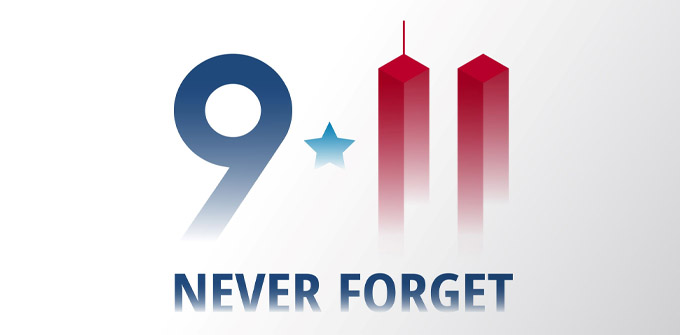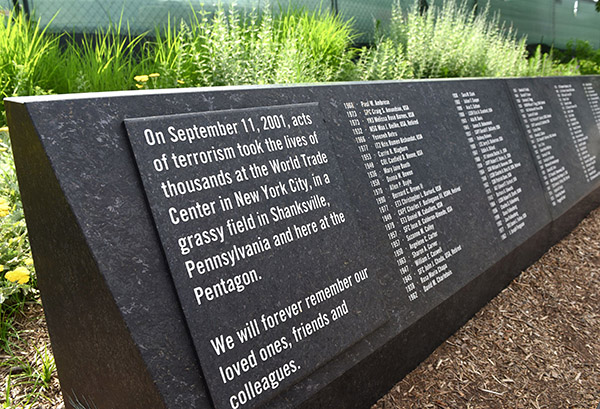On September 11, 2001, two hijacked planes hit the twin towers of the World Trade Center in New York. Another plane crashed into Pentagon in Washington, D.C., while the fourth plane ended up in a field in Shanksville, Pennsylvania.
Carried out by 19 members of the Al-Qaeda terrorist network funded by Saudi fugitive Osama bin Laden, these attacks killed 3,000 people and injured several thousand others. Its impact still lingers in American lives, especially in victims and their family members, even after twenty years.
Things You Should Know About 9/11
- Long-Term Effects Of The Terrorist Attacks
Physical and mental effects are the long-standing health impacts of 9/11. Thousands of volunteers, rescue workers, and New York City residents were exposed to asbestos and other toxic fumes during the initial evacuation efforts and the nine-month-long clearing operations.
The smoldering debris caused various respiratory ailments such as asthma, chronic obstructive pulmonary disease, and more than 60 types of cancer. According to history.com, ten thousand people were diagnosed with 9/11-related cancer in 2018.
Aside from physical ailments, victims’ family members and others also experience mental health issues due to the trauma from the 9/11 attacks. First responders and survivors experience post-traumatic stress disorder, depression, and anxiety disorder.
The World Trade Center Health Program, a government-backed health initiative, provides treatment for 9/11-related illness. It also offers yearly medical monitoring to prevent further disease or manage symptoms upon certification.
- Victim Compensation Fund
The 9/11 terrorist attacks resulted in thousands of casualties. Between 2001 to 2004, $7 billion were given as compensation for the families of the 9/11 victims. President Obama renewed it for five more years with additional funding of USD$7.4 billion, which ended in December 2020.
President Donald Trump signed a law that extended the 9/11 victim compensation fund until 2092. Volunteers and rescue workers who helped in the nine-month clearing operations on Ground Zero can also get assistance from the said fund. The legislation supports compensation claims and monitors the health conditions of individuals involved in the 9/11 clearing and retrieval operations.
- Patriot Day And 9/11 Memorial Museum
Aside from health initiatives to provide relief, Congress also enacted a law that declared September 11 as Patriot Day. On this National Day of Remembrance, all U.S. flags are flown at half-staff. A moment of silence starts at 8:46 AM to commemorate when the first plane hit the World Trade Center. Solemn activities are also conducted in memory of those who perished.
The 9/11 Memorial situated on the western portion of the World Trade Center (WTC) complex opened ten years after the attack. It was designed by Michael Arad and Peter Walker and featured the largest artificial waterfall in North America. The names of those who died are immortalized in bronze panels that enclose the waterfalls.
The museum houses artifacts and provides visitors with personal and collective narratives regarding the 9/11 incident. The 400 white oak trees were selected from nurseries in New York, Pennsylvania, and Washington D.C. as living symbols of the areas devastated by the attack.
- Targeted American Symbols
The terrorist attacks targeted American symbols of power and dominance. The twin towers of the World Trade Center symbolized economic prosperity while the Pentagon stood for military power. While the fourth plane’s intended destination remains a mystery, it’s believed to would have been headed for any of the following: the White House, Capitol Building, Camp David presidential retreat, or any of the nuclear power plants on the eastern coast.
- The Al-Qaeda Terrorist Group
Founded by Osama bin Laden in 1998, Al-Qaeda is known for carrying out simultaneous bombings and suicide attacks. Before the attack, the terrorists entered the U.S. for commercial flying lessons. Nineteen hijackers operated the four planes, using box cutters to disable the crew. All of the hijackers died in the plane crash. On May 2, 2011, Osama bin Laden was killed by U.S. forces in Abbottabad, Pakistan.
- Code Name PENTBOMM
The 9/11 Commission investigated the terrorist attacks. It started the most extensive FBI investigation in history, with half of the agency’s detectives working to discover and capture the perpetrators. The commission explored half a million leads and received countless tips from the public.
It released its findings on July 22, 2004, and named Khalid Sheik Mohammed as the ‘principal architect’ of the terrorist attacks. He and four others were sentenced by a U.S. military court judge in 2004 and are awaiting trial this year at Guantanamo Bay, Cuba.
- Creation of Additional Government Agencies
The September 11 attacks called for increased national security measures. It led to the creation of several law enforcement agencies such as the Department of Homeland Security (DHS), Immigration and Customs Enforcement (ICE), and the Transportation Security Administration (TSA). They are responsible for preventing terror attacks, monitoring border security, and protecting the airline industry.
These measures ensure that America can preserve its structures and protect its citizens from terrorist threats in the future.
Conclusion
The date 9/11 will always be remembered as a tragic day when thousands of lives were lost due to terrorist attacks. The 9/11 Memorial and Patriot Day serve as tributes to those who lost and sacrificed their lives. At the same time, ongoing health programs and extended funding for victim compensation help survivors and responders work their way toward recovery.
Aside from caring for those directly affected by the attacks, America also safeguards its structures and citizens through stringent security measures and additional law enforcement agencies.






